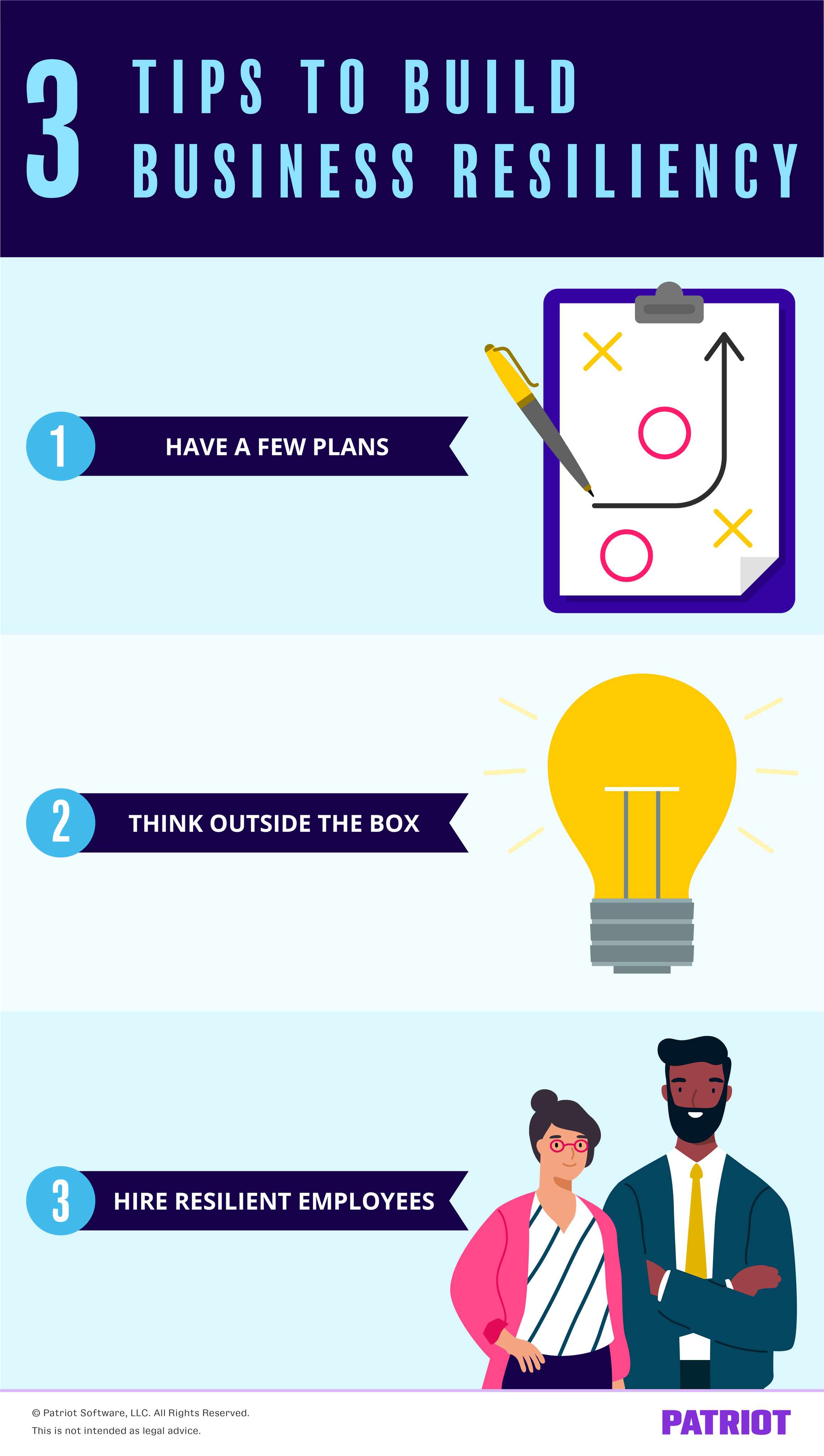With COVID-19 continuing to wreak havoc on company operations nationwide, we need business resilience now more than ever.
So what is business resilience, why does it matter, and how do you get it? Read on to find out.
What is business resilience, and why does it matter?
Business resilience, also called continuity planning, is a company’s ability to recover quickly from or adapt to difficult situations. These situations can include national emergencies like coronavirus, natural disasters, recessions, business identity theft, fraud, and general revenue loss.
Without business resilience, your venture may struggle to stay afloat when things don’t go according to plan. And, resiliency makes it possible for your business to grow and adapt with the times so you don’t get stagnant.
If your business is resilient, you will have the opportunity to quickly adapt to whatever life throws at your company.
COVID-19 shuttered non-essential businesses’ doors nationwide. This forced employers to furlough employees, lay off staff, or move to a remote workforce. The pandemic caused supply shortages, prompting entrepreneurs to look at alternative supplies, processes, or suppliers. And, it led to a huge drop in customer spending, requiring businesses to get creative with their offerings, cut out expenses, and apply for funding (e.g., Paycheck Protection Program).
All of these responses exemplify business resilience.
Business resilience covers all aspects of operations. Consider the importance of resiliency when it comes to your:
- Workplace
- Supplies
- Operations
- Budget
- Marketing
- Purchasing process (online vs. in-person)
3 Tips to build business resiliency
If your business struggles with resiliency, don’t panic. Many businesses aren’t inherently built to change things up at the drop of a hat. But, you can use the following tips to work towards resiliency.

1. Have a few plans
When it comes to business, you know that Plan A doesn’t always work. You also need a Plan B, and C, and D, and so on.
For efficient business resiliency, be prepared for things that are outside of your control with a plan. Your business continuity plan should cover your business’s response before, during, and after a situation. Its focus should be on how you can continue operating your business.
A business continuity plan should include:
- Risks (e.g., natural disasters, fraud, national emergencies)
- What these risks mean to your business
- Procedures if these risks arise
- Safeguards in place to limit the damage of the risks
For example, the coronavirus prompted many employers to create temporary work-from-home policies as part of their business continuity plan.
When you create your business continuity plan, don’t stick it on a shelf to collect dust. Constantly revise it as new technologies, strategies, and procedures emerge.
Other actions you may consider taking as part of your emergency preparedness plan may include:
- Backing up records
- Getting insurance
- Investing in supplies
Of course, you can’t plan for every situation. Nobody could completely plan for something like COVID-19. But with a few plans and an outline of options, you can give your business a better chance at adapting.
2. Think outside the box
One of the most important parts of business resiliency is being able to think outside of the box. Creativity and innovation are key to being able to adapt everything from your business’s operations to budget.
Many small businesses have adapted to the coronavirus by offering additional products that are in demand, like care packages, online classes, and DIY kits. And to get around the issue of business closures due to COVID-19, businesses have incorporated delivery systems.
Thinking outside the box often requires you to let go of the need for control. Once you can let go of trying to control things outside of your control, you can get creative and work with whatever you’re dealt.
3. Hire resilient employees
Are your employees resilient? Whether your business is dealt with a difficult situation or not, you need workers who are able to roll with the punches. Business demands change daily, and having a resilient workforce will equip your business with the ability to handle the good times and the bad.
When interviewing candidates, look for key resiliency-related soft skills like problem-solving and adaptability. Ask creative interview questions to see how employees have responded to changes in the past.
Things like responding to canceled projects, working within short deadlines, or innovative problem-solving can give you a glimpse of how workers will respond in difficult situations, like a global pandemic.
If your staff needs a reminder, consider leading them in resiliency training. You can ask employees to complete online training or have a (virtual) meeting to discuss ways they can boost their adaptability.
